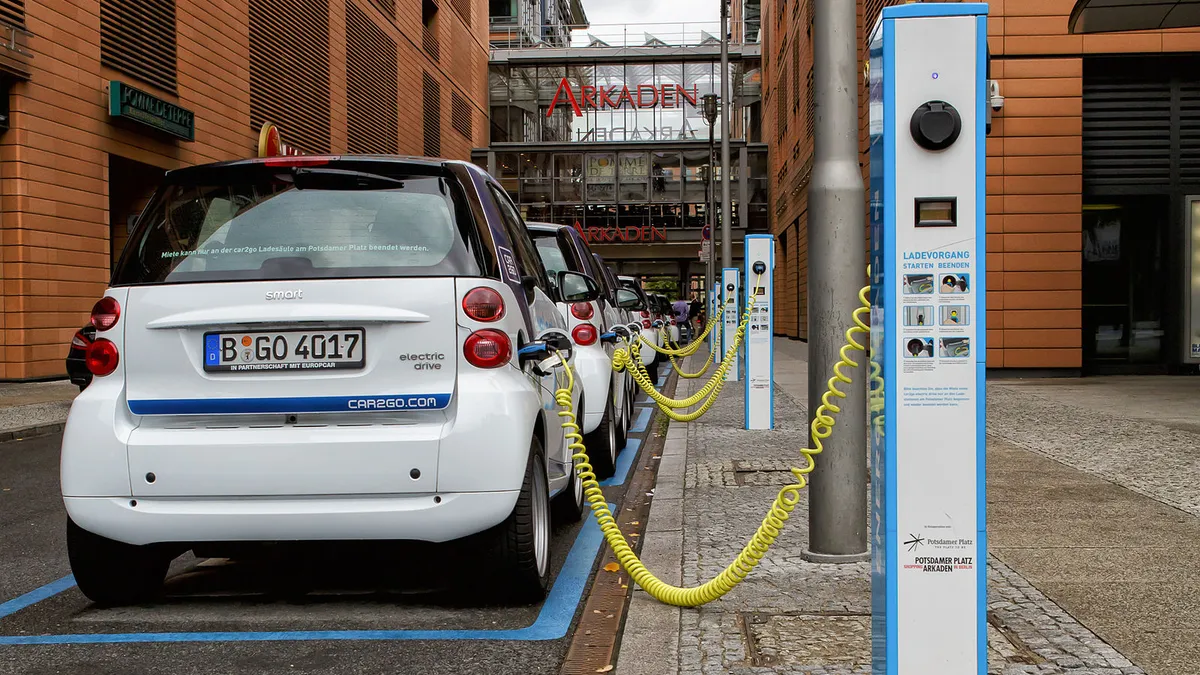Dive Brief:
- A group of environmental nonprofit organizations has worked with businesses and other stakeholders to draft the Transportation Electrification Accord which includes principles and guidance for electric transportation. Entities such as the Sierra Club, the Natural Resources Defense Council, Honda and Siemens have already signed the accord.
- The pact offers information and guidance for policymakers on how to move forward with electric vehicles (EV) and infrastructure so communities experience economic, social and environmental benefits.
- The accord tries to balance benefits for utility customers and for all citizens who use any form of transportation. It also supports progressing to a cleaner grid and encouraging innovation and competition among U.S. companies.
Dive Insight:
Organizations, businesses and individuals can sign the non-binding deal and pledge to uphold its principles regarding EVs. The accord covers topics for a wide range of stakeholders and can be used to educate a variety of audiences about the future of electric transportation.
The accord notes that it is critical for state and local governments to support electric transportation. Municipal and state governments do have a better chance of affecting significant change on this topic than the federal government. They also better understand the needs of citizens in their region and how best to implement EV policies and infrastructure.
The pact calls on utilities for preparation and to proactively engage their regulators. Considering that an influx of EVs could strain an unprepared electric grid, it's a good idea to engage power utilities early in the process to ensure the grid remains reliable. That gives them time to investigate demand, load management, smart charging and rate structure.
Many trends or revolutions don't have adequate guidelines and best practices laid out during their early phases. The electric vehicle (EV) renaissance is in its fledgling state and much is still being learned about the EV technology itself, much less the policies that will govern such technology. This accord aims to ease the transition to electric vehicles and to avoid preventable mistakes along the way.












